Covid: 'This virus was completely underestimated'
- Published
Prof Sir Mansel Aylward thought he would die with Covid and has suffered mental health issues since having the virus
Covid was "completely underestimated" and not enough was done to prepare for a pandemic in the UK, one of Wales' most senior doctors has said.
Prof Sir Mansel Aylward, ex-chairman of Public Health Wales, said he was "to blame as much as anyone".
Sir Mansel has spoken of struggling for months with physical and mental health issues after testing positive.
He also spoke about Covid's impact on his community in Merthyr Tydfil - one of the worst-hit areas in Wales.
Sir Mansel, who was one of the first on the scene in the wake of the Aberfan disaster in 1966, said he initially mistook his symptoms for the asthma he has suffered with since childhood.
But the 78-year-old soon began to deteriorate and went into hospital in April.
"I had multiple clots - emboli in both of my lungs and it was quite serious, a life threatening disease," he said.
"Later, they showed me the X-ray and I thought, 'Oh my God that's me, I'm off, you know, I've had a good life', and all that sort of stuff, I really did feel that, I was at my lowest at that point."
He found the disease's long-term effects, which included severe depression, more debilitating than the initial illness and said without the help of professionals and support from his family "I dread to think what would have happened".
Although he said the NHS "did as well as it could" in dealing with the pandemic's effects, Sir Mansel claimed governments and health organisations failed to appreciate how serious Covid was in the early stages.
He also said there was a failure to properly plan for the risk of a global pandemic over a number of years.
"The big lesson that has to be learnt is that the virus itself and its effect was completely underestimated," he said.

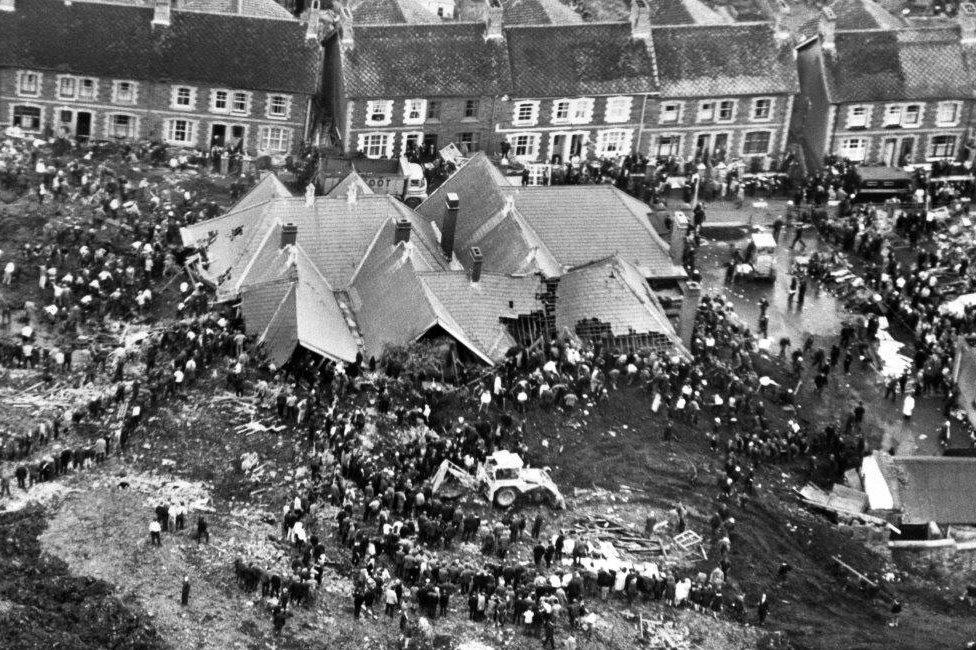
A total of 116 schoolchildren and 28 adults died after the mine slag heap engulfed Pantglas Junior School
'The Aberfan disaster changed my whole career'
Sir Mansel has had a distinguished career, holding some of the most important medical and scientific posts in the UK - a world away from the Merthyr Tydfil pub and social club he grew up in.
He began his career as a GP in the town after changing his mind about wanting to become a surgeon.
That decision came after he witnessed one of the biggest tragedies in Welsh history, and it would go on to shape the rest of his life.
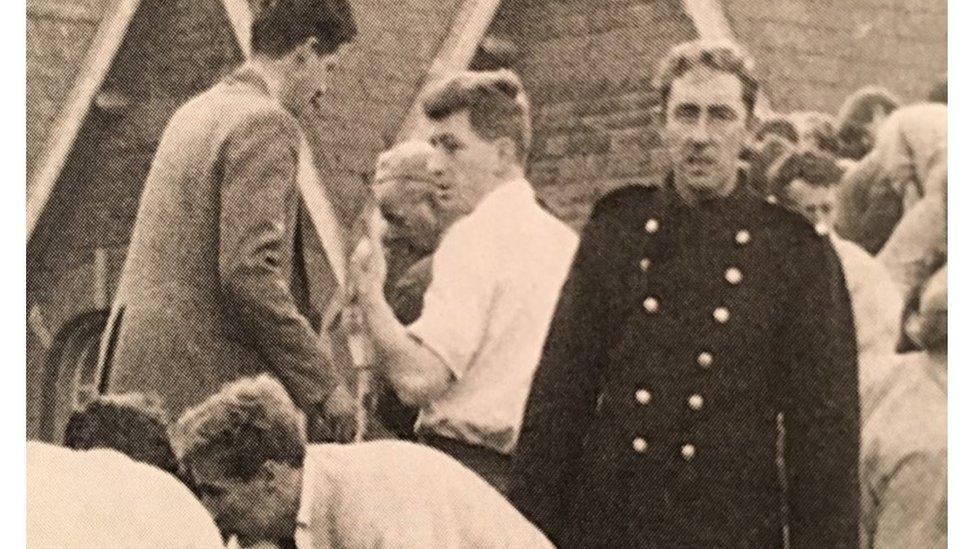
Sir Mansel Aylward - pictured in the white shirt - was one of the first responders after the disaster struck
"My life was changed after the experiences I had after the Aberfan disaster in 1966," he said.
"I was then a final year medical student, my wife and I and my small son came home, by chance, on that day and were stopped at the top of Dowlais and told there'd been a disaster in Aberfan.
"I thought it was a mining disaster because my family are from Aberfan and many of them were colliers, but it turned out to be the school.
"I was one of the first responders and spent two days in Aberfan and saw things which I could not [until recently] even think about."
The effect of Covid on his home community has rekindled the memories of the disaster's aftermath.
"I'm very upset at the number of people who were in my class at school who have died with Covid or suspected Covid," he said.
"I'm talking about seven or eight people the same age as me. It's had a major effect on the way I think.
"I've been to seven or eight funerals in the last two months and it's really soul-destroying.
"I never thought, after Aberfan, that I'd face any experience like that again and even though Covid is not at that level, it has been something that's deeply affected me, my family and my friends."

It would take Sir Mansel - also chairman of the Bevan Commission health think-tank as well as the Life Sciences Hub Wales - nine months to recover from the virus.
"The long-Covid as it's known, started two or three weeks after my acute attack and that disabled me even more," he said.
"I couldn't sleep, I couldn't even get out of a chair, I had to be helped, I had difficulties getting in and out of bed.
"I felt dreadful, I had days when I had depression. I wasn't thinking properly - that's a thing my family noticed. I found difficulty finding a word, I forgot things quickly. I said some silly things and did some silly things."
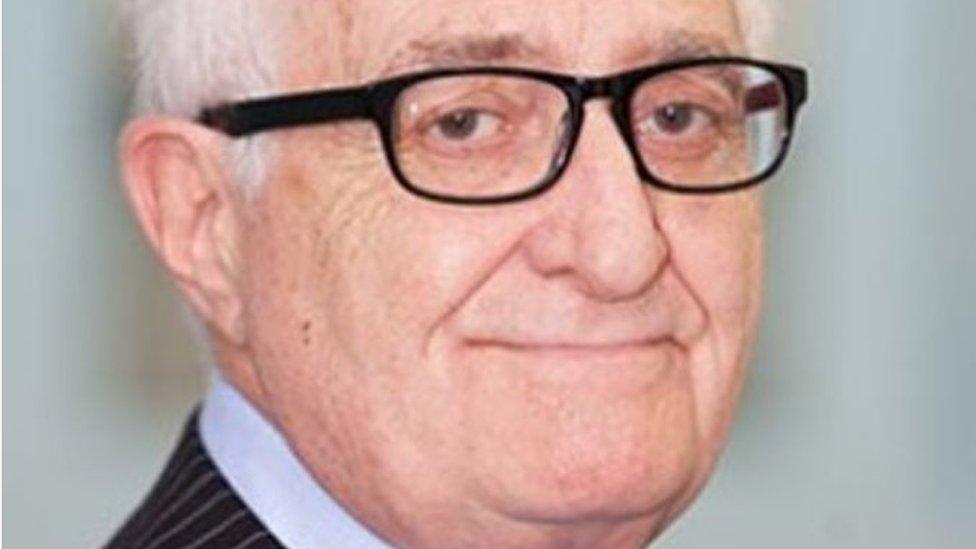
Sir Mansel admits "we weren't prepared in the way of doing something concrete at the beginning" of the pandemic
He said he "needed confidence" he would not remain like that for the rest of his life.
"[But] that support came from my family in particular, from physicians, endocrinologists, psychiatrists, GPs - they all needed to be there as Covid is a multi-faceted disease," he said.
"I had initial depression because I thought I was going to die - and the later depression when I thought I wasn't going to recover from it. I'm very lucky I had so much support, understanding and empathy."
The under-estimation of the virus meant people "understandably said, including my colleagues, it's only a mild cold, sniffles, mild influenza. That was wrong and we should have been on to that much more quickly".
He added: "I'm to blame as much as anybody else. I was chair of Public Health Wales for eight years. And each year we had a couple of days where we planned for a pandemic.
"So yes, I think we were prepared 'theoretically' about what we should be doing, But we weren't prepared in the way of doing something concrete at the beginning, well-planned, well-written out.
"We could have done more much more quickly, but when the NHS got around to it, once we got moving we did go 'above and beyond' and that's the silver lining, the way people worked together, communities understood and listened and there was much closer working between health and social care."
He said the challenges facing the health service would last for many years and the pandemic had proved there was a clear need to "spend more money on the NHS".
Related topics
- Published9 February 2021
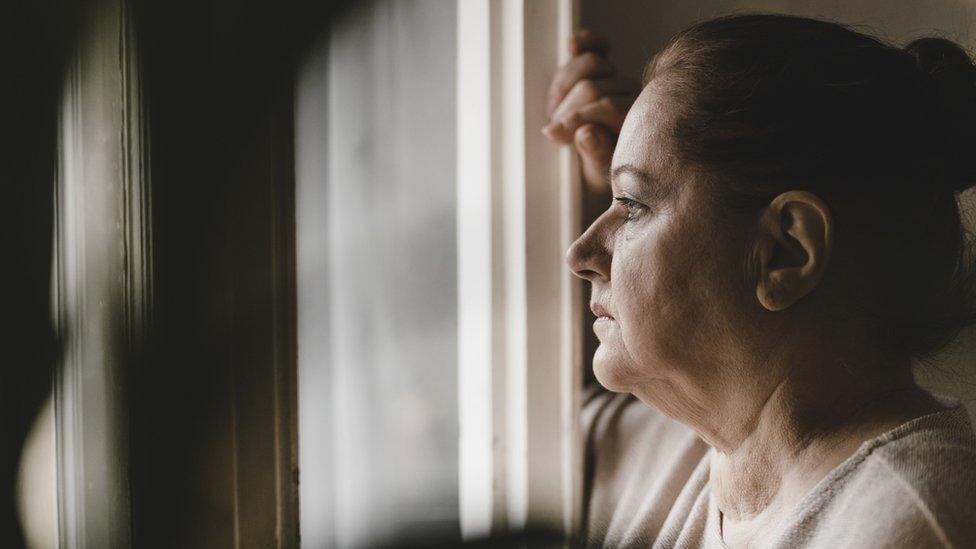
- Published27 February 2021
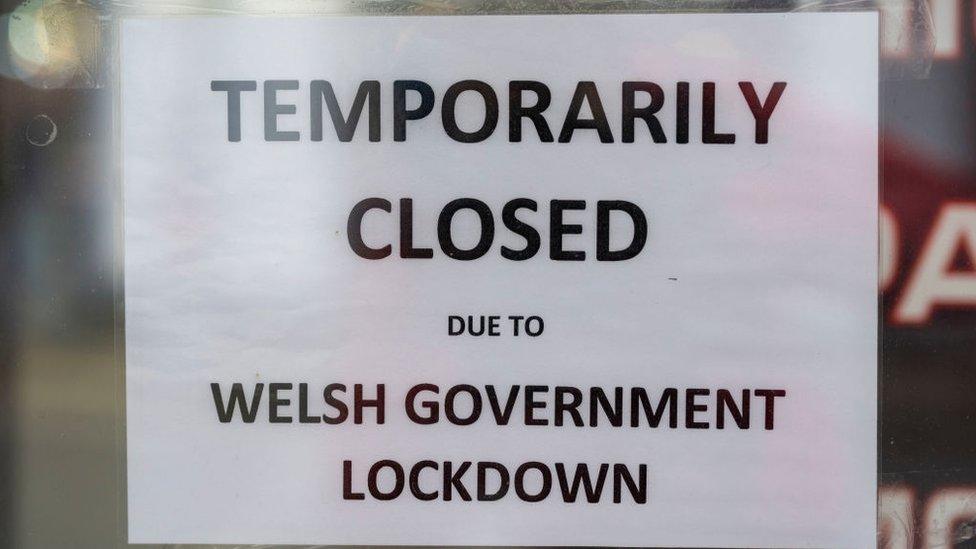
- Published6 October 2020
